Affiliate links on Android Authority may earn us a commission. Learn more.
5 things you should know about Android's new AirTag alternatives
Android’s AirTag alternatives are finally, finally ready to launch. These new Bluetooth trackers were announced about a year ago but were delayed because of… Apple.
But we finally have all the details, so here are five things you should know about these Android-compatible Bluetooth trackers, including how they work, what models you can buy, when, and for how much.
New Chipolo and Pebblebee trackers, and more to come
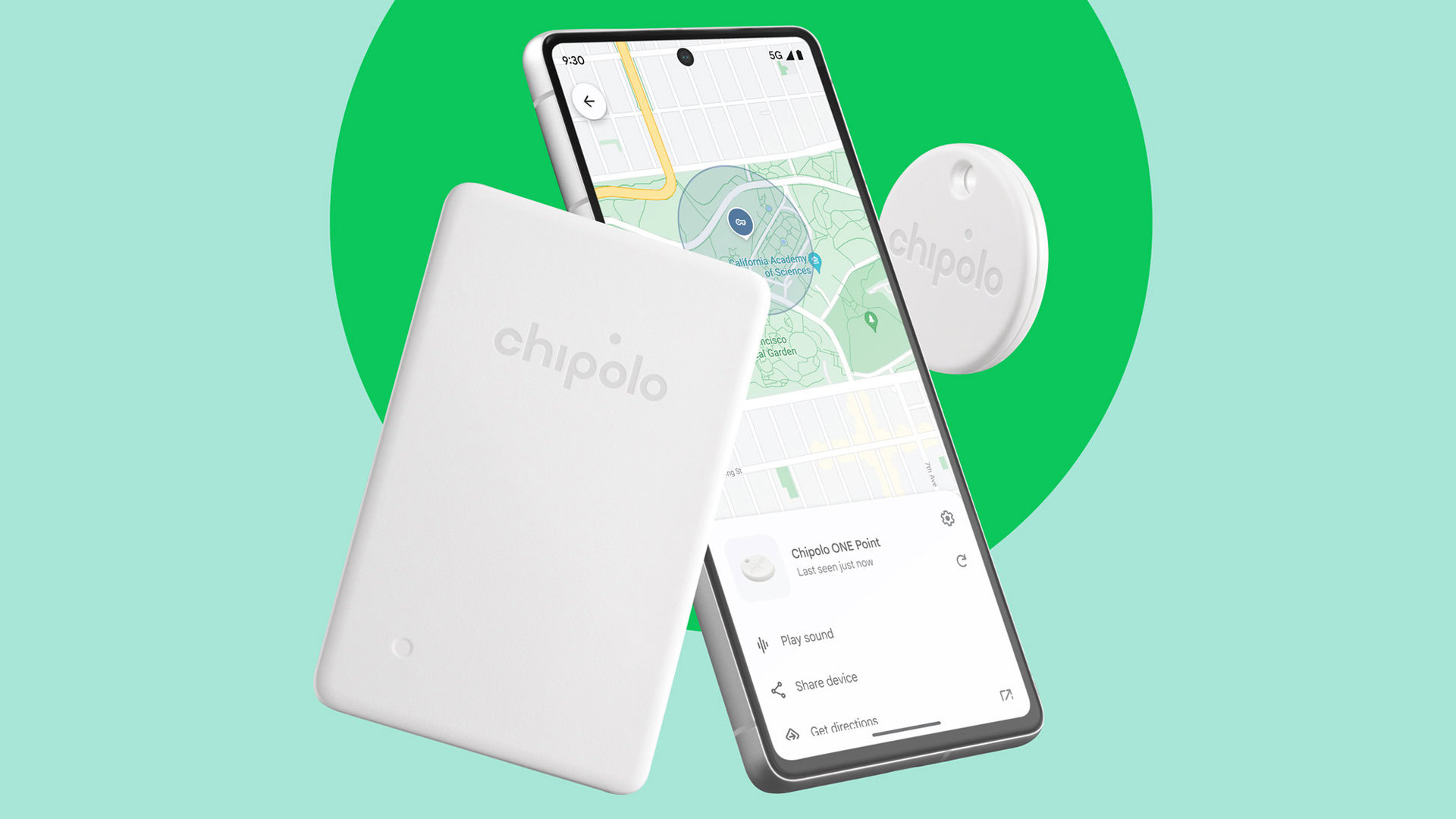
Both Chipolo and Pebblebee are releasing Bluetooth trackers that will be compatible with Google’s new Find My Device Network on Android. Google says Motorola, eufy, Jio, will release more trackers before the end of the year, while last year the company also teased Tile as a partner. We still don’t have any details about any of those yet, so let’s focus on the first two.
Chipolo will offer two models, both in white:
- the ONE Point, which is round and has a keyhole to hook it to your keys,
- and the CARD Point, which is the same size as a credit card but a little thicker at 2.4mm. It should still fit well in most wallets, though.
Both trackers use Bluetooth, are splash-resistant, and have a loud siren to help you find them. The round ONE uses a replaceable coin-cell battery, but the CARD doesn’t. However, Chipolo offers a 50% discount to existing CARD owners to buy a new one when their battery dies.
| Chipolo ONE Point | Chipolo CARD Point | |
|---|---|---|
Design | Chipolo ONE Point Keyring hole | Chipolo CARD Point Credit card-shaped |
Dimensions | Chipolo ONE Point 37.9mm diameter | Chipolo CARD Point 85.1mm x 53.6mm |
Thickness | Chipolo ONE Point 6.4mm | Chipolo CARD Point 2.4mm |
Siren | Chipolo ONE Point 120dB | Chipolo CARD Point 105dB |
Battery life | Chipolo ONE Point Up to 1 year (user-replaceable CR 2032) | Chipolo CARD Point Up 2 years (Renew & Recycle program) |
IP rating | Chipolo ONE Point IPX5 rating, splash-proof | Chipolo CARD Point IPX5, splash-proof |
Bluetooth range | Chipolo ONE Point Up to 200ft | Chipolo CARD Point Up to 200ft |
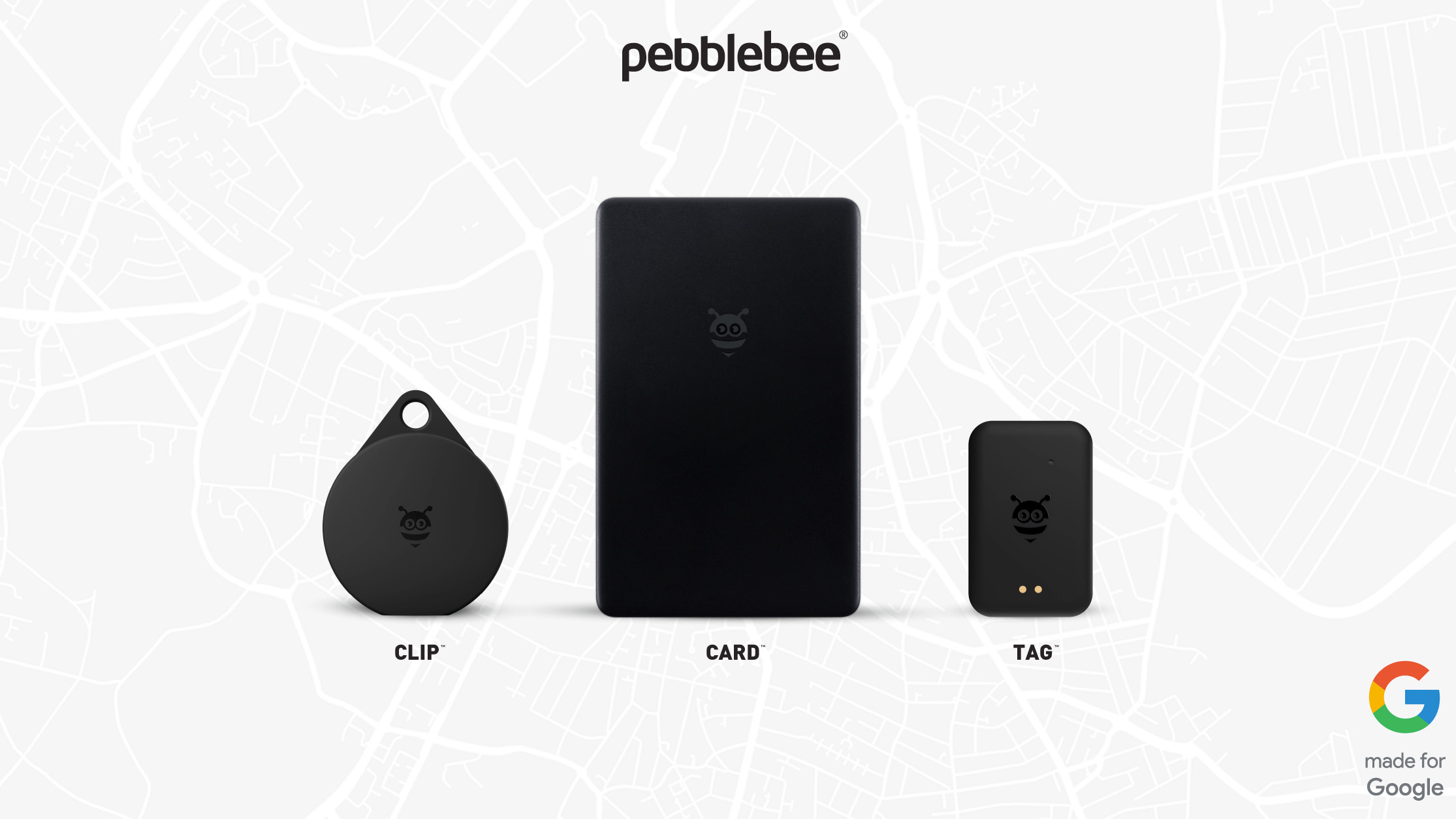
Pebblebee, on the other hand, has three different models, all in black, and two of them are very similar to Chipolo’s ONE and CARD:
- a round Clip with a keyhole,
- a credit card-sized Card,
- and a mini Tag that you can stick to small items like remote controls for example.
All of these have rechargeable batteries via a USB-C cable, which is more sustainable than Chipolo’s approach. They’re also rated at a higher IPX6 water resistance instead of IPX5 splash resistance, and they have bright LED lights to help you find an item in the dark.
| Pebblebee Clip | Pebblebee Card | Pebblebee Tag | |
|---|---|---|---|
Design | Pebblebee Clip Keyring hole | Pebblebee Card Credit card-shaped | Pebblebee Tag Mini tracker with double-sided adhesive |
Dimensions | Pebblebee Clip 38mm diameter | Pebblebee Card 85mm x 54mm | Pebblebee Tag 40mm x 26mm |
Thickness | Pebblebee Clip 8.5mm | Pebblebee Card 2.8mm | Pebblebee Tag 4.5mm |
Alerts | Pebblebee Clip Siren + bright LED lights | Pebblebee Card Siren + bright LED lights | Pebblebee Tag Siren + bright LED lights |
Battery life | Pebblebee Clip Up to 12 months (USB-C rechargeable) | Pebblebee Card Up to 12 months (USB-C rechargeable) | Pebblebee Tag Up to 12 months (USB-C rechargeable) |
IP rating | Pebblebee Clip IPX6, water-resistant | Pebblebee Card IPX6, water-resistant | Pebblebee Tag IPX6, water-resistant |
Bluetooth range | Pebblebee Clip Up to 500ft | Pebblebee Card Up to 500ft | Pebblebee Tag Up to 300ft |
On paper, I’m definitely more intrigued by Pebblebee’s tracker features, but I remain a little bit worried about their extra thickness.
Google’s new Find My Device network
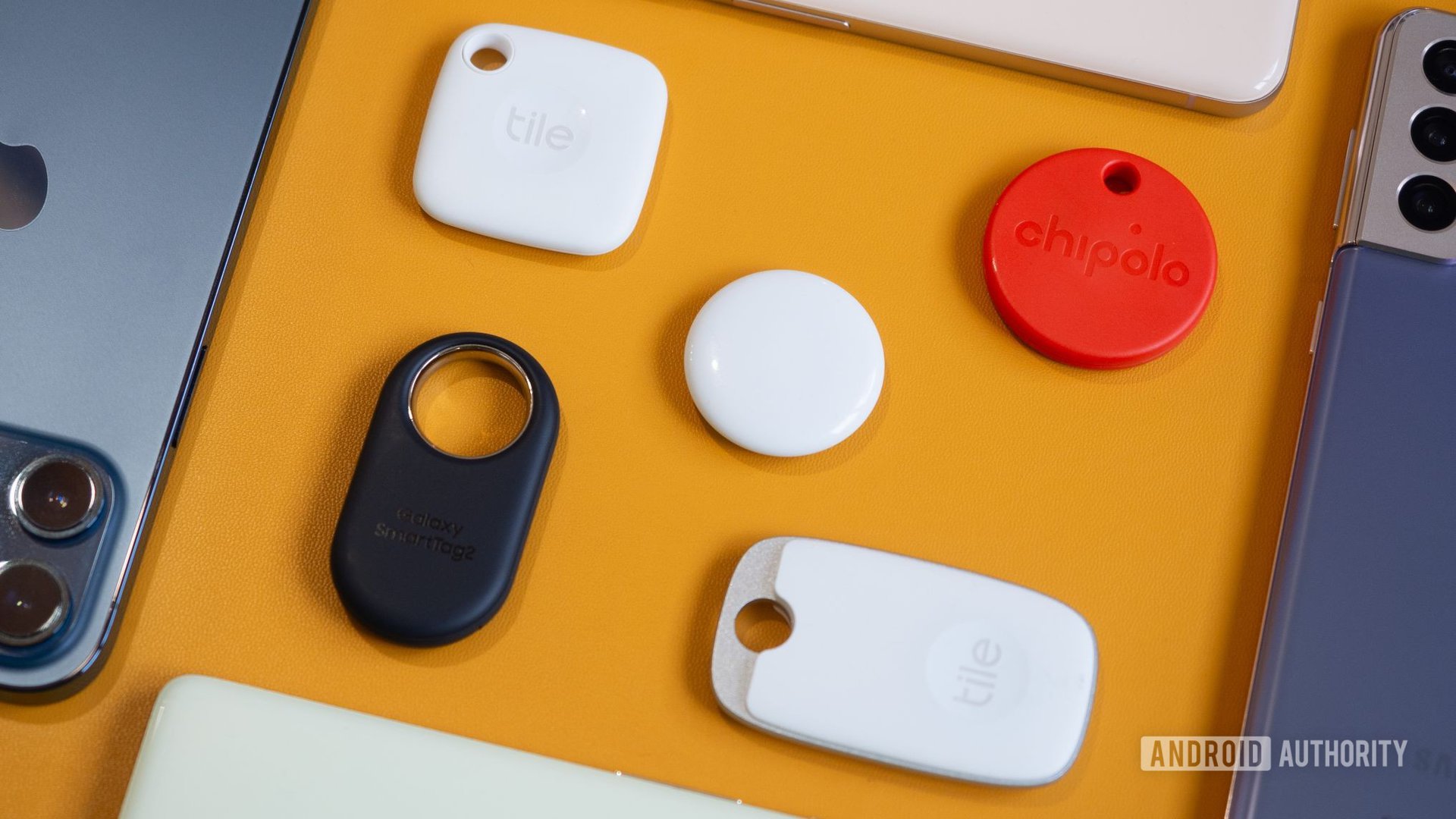
You’re probably reading this and thinking, “Hey, I already have Bluetooth trackers that work with my Android phone! So what’s new here?” And sure enough, those trackers existed, but they only worked with their own app and network.
This is the case of Tile’s and Samsung’s trackers for example. The Galaxy SmartTag 2 only works on Samsung phones and uses other Samsung phones to find your lost items — that’s a little limited.
The new tags from Chipolo and Pebblebee are instead built around Google’s new Find My Device network, which will work across all of Android, not one specific brand or its app. So, Pixel, Samsung, Motorola, Nothing, Xiaomi, and more; all of these phones are compatible and all of them can be used as the backbone of the network.
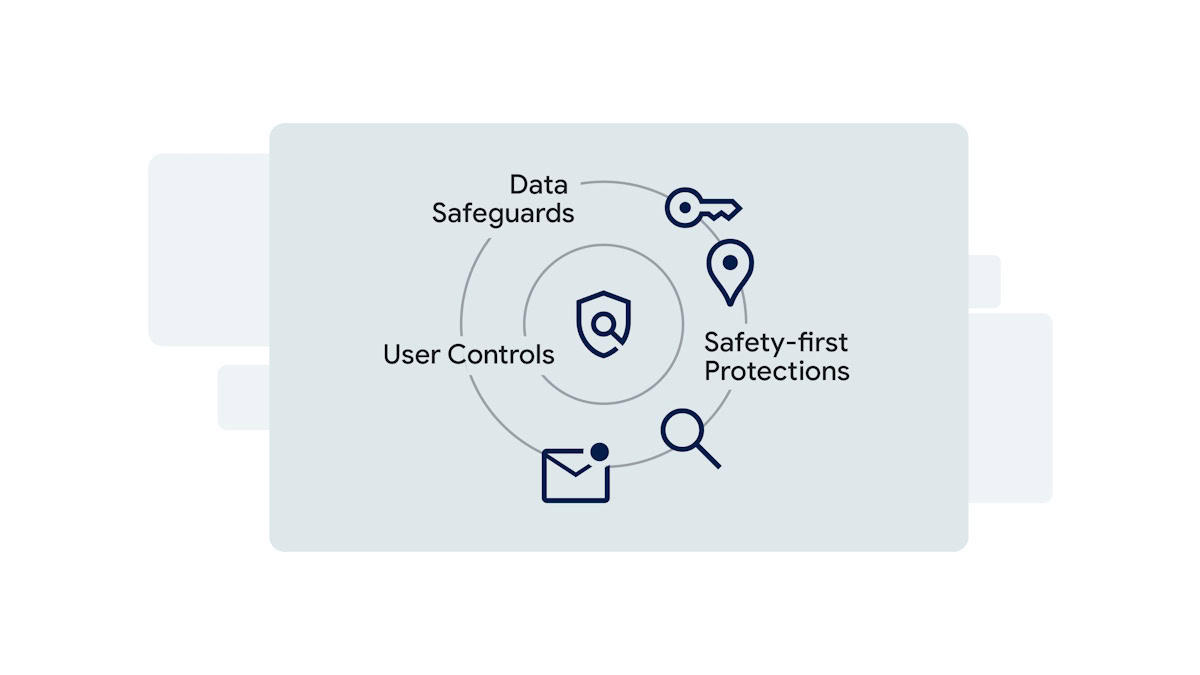
This new Android Find My Device network also works pretty much like Apple’s Find My network. It is end-to-end encrypted and crowdsources a billion Android phones around the world. Those phones become private and secure nodes to help you find your lost tracker. That’s a game-changer because Android has a much higher market penetration than Apple worldwide, so Google’s network should, theoretically speaking, be stronger and have a wider spread than Apple’s Find My, especially in areas where iPhones are a rarity.
So suppose I’m traveling and my luggage gets sent to Peru while I’m landing in Beirut — which has already happened once, mind you. I should still know the location of my suitcase as long as an Android phone is near it. Well, as long as that Android phone meets these requirements:
- Android 9+
- Latest version of Google Play Services
- Bluetooth on
- Location services on
- Owner is 18+ years old in certain countries.
Most notably, the phone needs to have Bluetooth enabled at all times because the network relies on it. Phones with Android 15 might even get a new setting that auto-turns Bluetooth on the next day after you turn it off, so you never leave the network for more than 24 hours. If you prefer to keep everything disabled and not participate in the network, you can do that, though it’s opt-out as standard.
Expected tracker features
Now, if you buy one of these trackers that are marked as “Works with Android Find My Device,” you should expect it to have the same features, regardless of who’s making it. You won’t need a separate app for each brand of trackers: So Pebblebee, Chipolo, and later Jio and Motorola’s trackers will all show up in Google’s Find My Device app.
A newly bought tracker will first pop up a Fast Pair notification similar to what you get for Bluetooth earbuds to let you link it to your Google account.
You can give it a name and an icon, and then find it when it’s nearby by ringing it or track it when it’s far away if it’s been located by another Android phone in the network.
There’s also a nifty option where lost trackers around your home will alert you if they’re near Nest speakers, so you know exactly where to look for them instead of rummaging through the whole house.
You can also check the tracker’s battery status and share it with a partner or friend to let them keep an eye on shared items like car or house keys.
Unknown tracker alerts
One crucial feature of these trackers is that both Chipolo and Pebblebee — and any future product under Google’s Find My Device network — will trigger unknown tracker alert notifications on Android phones and iPhones.
Let’s explain: When Apple AirTags first launched, a few people started using them for nefarious purposes like stalking strangers and tracking their exes. After a few years and many, many complaints, Apple built unknown tracker alerts to notify you if an AirTag that doesn’t belong to you and was dissociated from its owner’s phone was following you around.
But now that Google has its own network, the two companies had to work together to create a single spec that both adhere to. That way, your iPhone can detect an unknown Google tracker if it’s following you, and your Android phone can also notify you if an AirTag is tracking you.
It’s been months since Google filled its own end of the bargain and rolled out unknown tracker alerts for Apple AirTags on Android phones, but we’ve been waiting for a year for Apple to bring the opposite feature to iOS. This is why Android’s AirTag alternatives have been delayed this long.
With iOS 17.5, which is supposed to launch in a few weeks, iPhones should be able to notify you of stalking Android trackers. And that’s why Chipolo and Pebblebee are finally able to launch their trackers now.
Pricing and availability
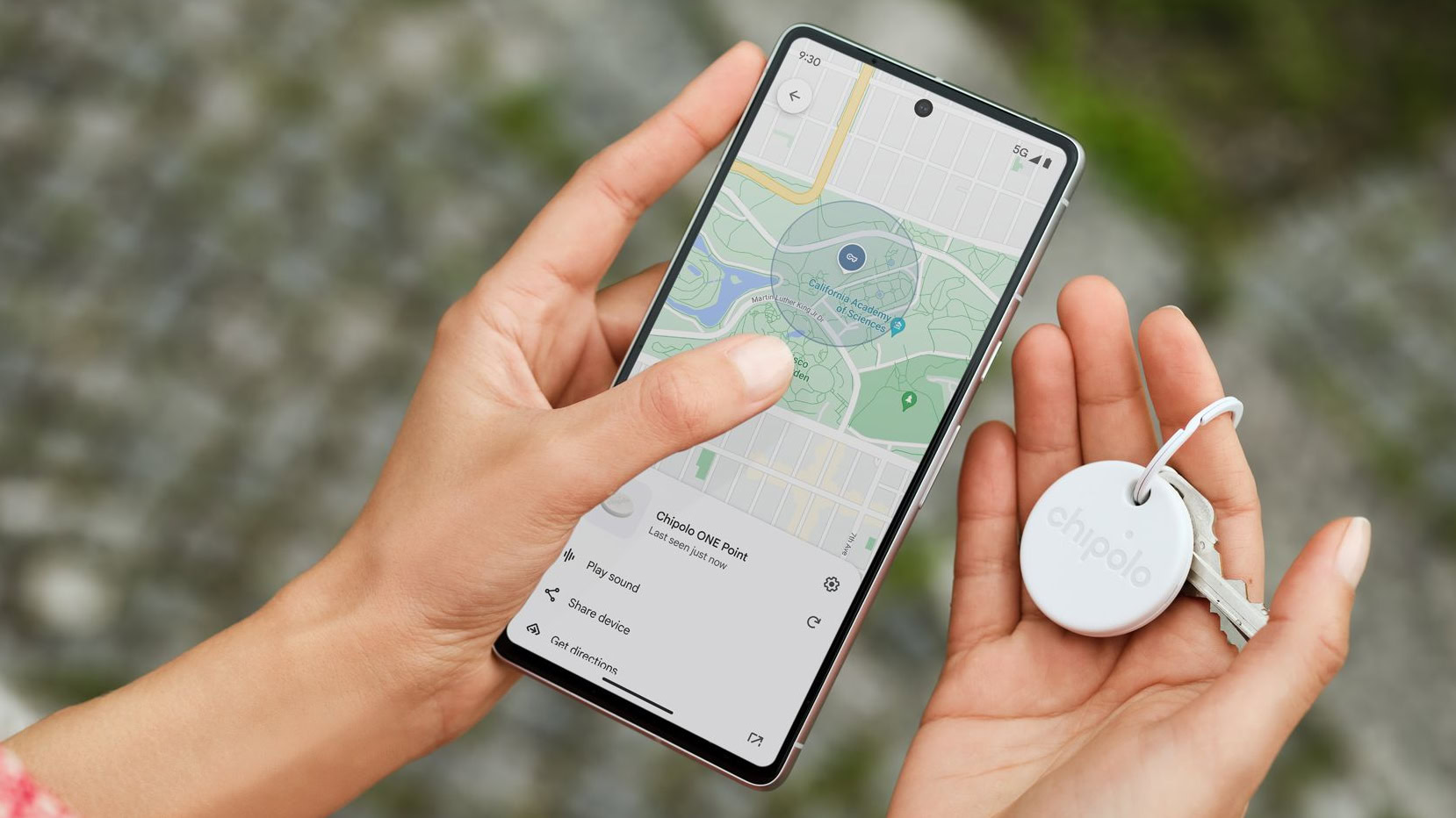
Chipolo’s two trackers will be available starting May 27 on Chipolo.net, and from July onwards on Amazon and other stores. The round ONE Point costs $28, the CARD Point is $35, and there are discounted multi-packs, plus a few bundles. Here is a detailed run down of the prices:
- Chipolo ONE Point
- 1-pack $28 / £30 / €34
- 4-pack $79 / £89 / €100
- Chipolo CARD Point
- 1-pack $35 / £35 / €39
- 2-pack $60 / £60 / €66
- 4-pack $112 / £112 / €125
- Chipolo Bundle (2 ONE Point + 1 CARD Point)
- $77 / £80 / €90
Pebblebee says its three trackers will be available in late May on Pebblebee.com, and starting June on the Google Store. All three models cost the same $29.99 for a single unit, with small discounts if you buy them in packs.
- Pebblebee Clip
- 1-pack $29.99 / £25 / €28.95
- 2-pack $54.99 / £45 / €51.95
- 4-pack $99.99 / £81 / €94.95
- Pebblebee Card
- 1-pack $29.99 / £25 / €28.95
- 2-pack $54.99 / £45 / €51.95
- 4-pack $99.99 / £81 / €94.95
- Pebblebee Tag
- 1-pack $29.99 / £25 / €28.95
- 2-pack $54.99 / £45 / €51.95
- 4-pack $99.99 / £81 / €94.95
Personally, I’m very excited to try these trackers out. I’ve already mentioned this before, but I travel a lot and I’m a forgetful person, so a lost-and-found system that works across all of Android is perfect for me.
We will be getting both the Chipolo and Pebblebee trackers in for review in late May, so keep your eyes open on Android Authority if you want to see how well they work and if they’re as good as Apple’s AirTag and Samsung’s SmartTag2.



